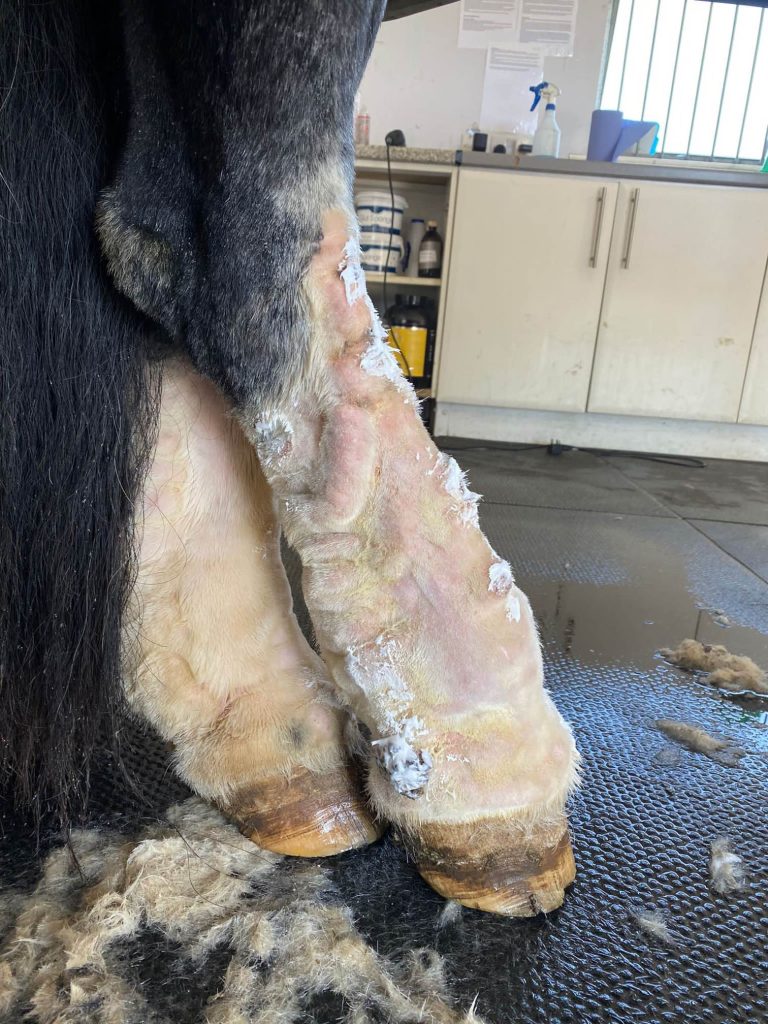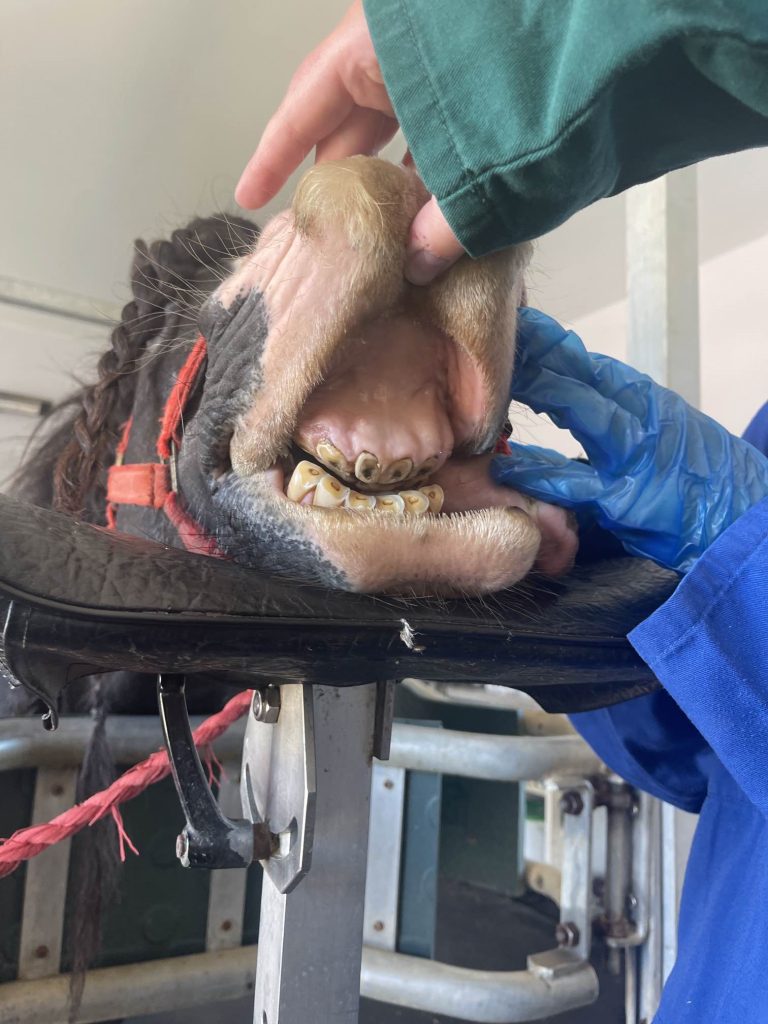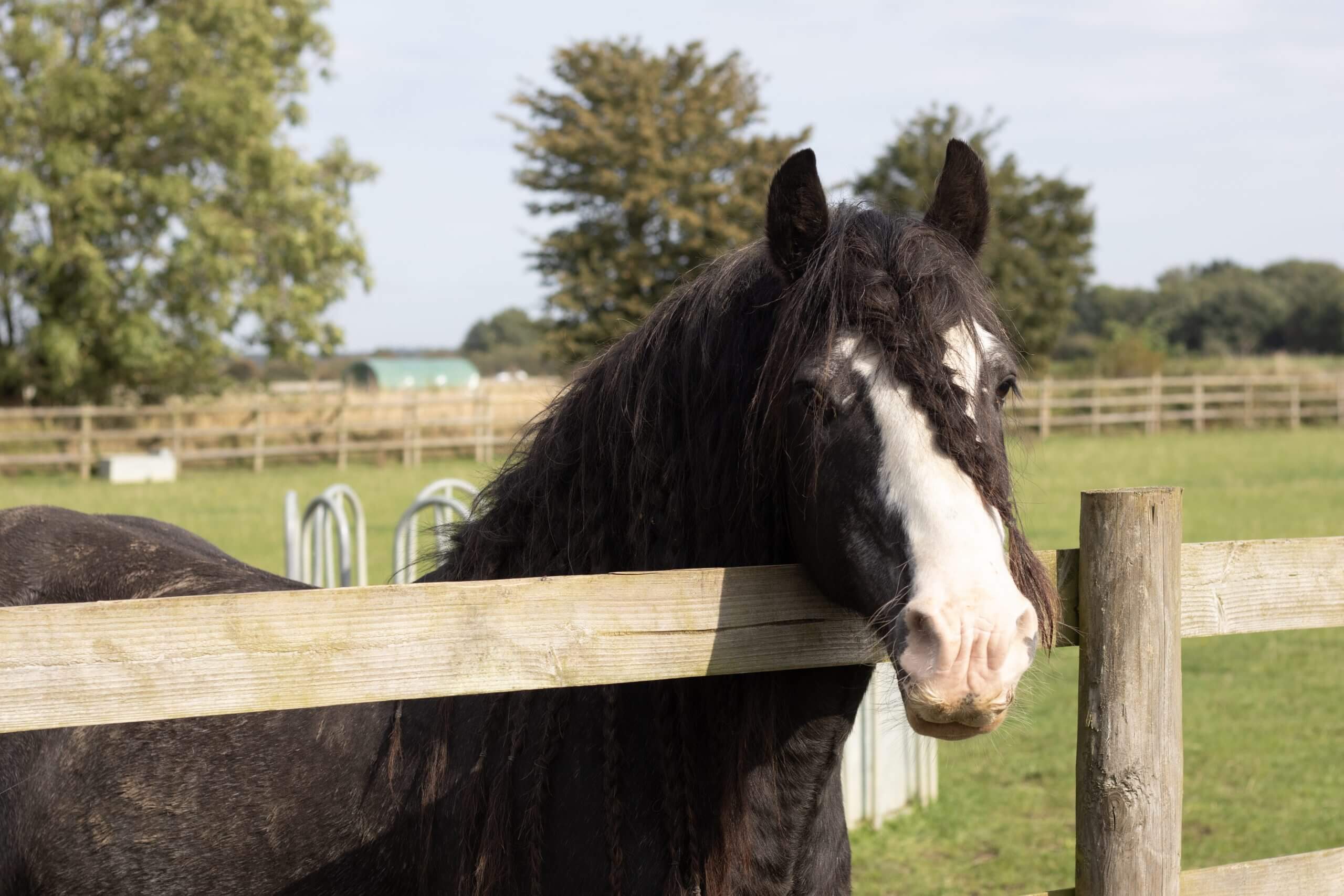Buying a horse is rarely straight forward and as many equestrians will testify it can be an emotional rollercoaster looking for ‘the one’.
But for experienced horse woman Ellie Haynes it was particularly difficult.
Responding to an advert for a safe hacking pony for her elderly mother, she arrived to view Oliver, who sounded perfect from the advert and conversations she’d had with the seller.
On first looks the 14hh black gelding was friendly and looked to be in good condition, however his legs were in a terrible state – swollen, sore and in desperate need of veterinary attention.
Ellie said: “I was told they had owned him all his life and were only selling because the owner was pregnant, but when I got there, it was apparent that just wasn’t the case.
“There was no definition to his legs from the knee to the foot – it was awful. There were so many lumps and bumps on them they looked like onion bhajis. His feet hadn’t been trimmed by a trained farrier and were so tall he looked like he was on stilts.
“I bought him there and then – I just couldn’t leave him.”
Ellie paid the full £2,000 asking price and took the friendly cob back to the livery yard where she kept her other horses.
The hope was he would make a full recovery with the correct veterinary attention but, over £1,000 in veterinary bills later, Ellie was forced to rethink.
“We got to a point where we realised Oliver needed more than I could give him. So, I called Bransby Horses for some advice and they were just amazing. I told them everything that had happened, and we agreed he needed to go to Bransby Horses if he was to have any chance of survival.”

Ellie called our Welfare phone line where she was able to talk through the best options for Oliver, who was suffering from Chronic Progressive Lymphedema – which is a serious inflammatory skin condition seen in draft, cob and heavier breed horses with long hair on their legs.
There is no cure for CPL, but intensive management can slow progression and improve quality of life, however the condition can be permanent, cause lameness and be life limiting.
His front incisor teeth were also worn down to stubs, which the vet who first saw him suspects was caused by living on concrete, forcing him to eat grass growing through the cracks.
Ellie said: “Considering the pain and discomfort he was clearly in, he should hate people, but he is the most loving pony I’ve ever had.
“I’ve spent a lot of time thinking about the money I’ve spent but, if the owner came to me today and said he’d take Oliver back and give me a full refund, I’d refuse. There’s just no way I could have left him there, he is the loveliest pony.”
Oliver and Ellie were also supported by some of the people who kept their horses on the livery yard, helping with bills and donating rugs and feed for him.

As one of the UK’s largest equine welfare charities we see hundreds of cases of neglect every year.
We can provide advice and guidance in most situations but horses are taken in on a case by case basis. It was fortunate on this occasion we were able to help – our advice would be to call if you are concerned for an animal’s welfare, rather than ‘rescue purchasing’.
For anyone who is concerned about a horse, pony, donkey or mule, our Welfare phone line is open weekdays from 9am to 3pm on 01427 787 369 or email: welfare@bransbyhorses.co.uk
DEFRA Equine Welfare Code of Practice
Horses, ponies, donkeys and mules can bring so much joy, but ownership is a long-term commitment which requires a responsible approach.
All horse owners are responsible for the welfare of their horses, including ensuring they have a suitable environment to live in; a healthy diet including fresh, clean water; are able to exhibit natural behaviours; are free from pain and disease; and has appropriate companionship.
The government Department for Environment, Food and Rural Affairs (DEFRA) has created a Code of Practice for horse ownership to outline what the law requires horse owners to do to meet their horse’s needs and fully understand the horse’s welfare needs.
The Code provides information on:
- How to provide a suitable environment for your horse;
- How to provide a suitable diet for your horse;
- Body Condition Scoring – Horses and Donkeys;
- How to provide for the behavioural needs of your horse;
- How to provide the right companionship for your horse;
- How to keep your horse healthy and protect them from pain, suffering, injury and disease;
- It also provides information on horse tethering and passports, the latter of which is requirement for all horses under British law.
To read more about the code click here.

